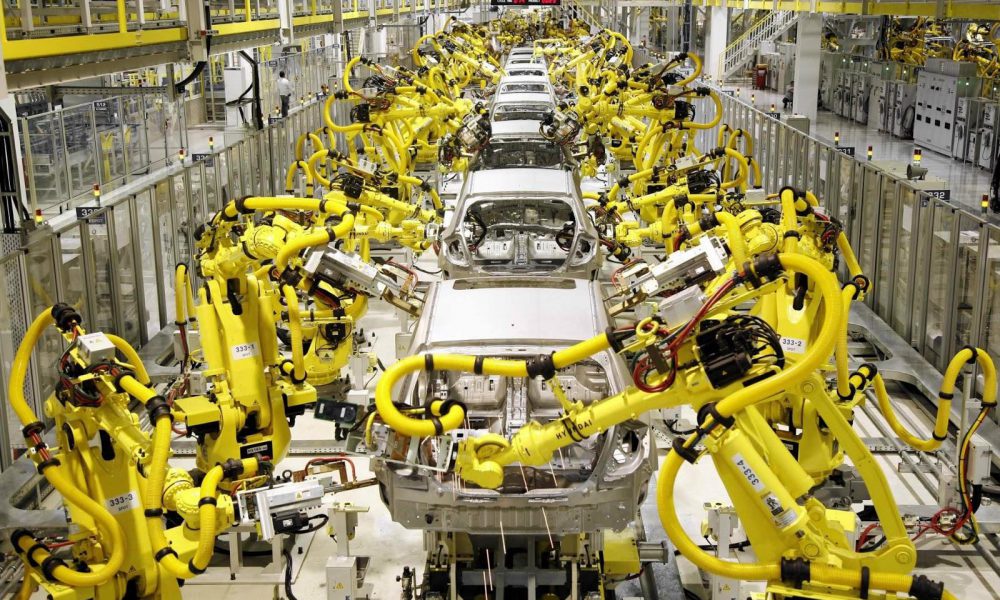How automation could impact “Make in India’’
August 16, 2016 3:00 pm
Experts from the industry speak about the impact automation could have on “Make in India”
To succeed as a global manufacturing hub, India also has to be a leader in innovation. The “Make in India” policy thus has a strong focus on smart manufacturing, encouraging automation and state-of-the-art machinery to enhance productivity, from product development through to manufacturing and delivery.
India imports over 75 per cent of its oil requirements and faces persistent shortfalls in power supply, both of which make energy efficiency important in manufacturing. Subject to the vagaries of global energy prices, this can negatively affect profitability at the firm level. As India upgrades its manufacturing base, efficient energy systems will therefore play a critical role in keeping the sector globally competitive. The “Make in India” campaign will need to utilise the substantial energy savings potential in India if it is to be cost-competitive. Manufacturing activities already account for one third of the world’s total final energy demand and, with continued growth; industrial demand for energy is expected to rise rapidly, highlighting the importance of energy efficiency. India will benefit from being a late starter in this area as this provides an opportunity to adopt the latest energy-efficient technologies to support its ambitions in improving industrial performance. Such investments often pay for themselves quickly.
The key to improved energy efficiency will increasingly lie in software rather than in hardware. As advances in technology allow better management of equipment and processes, the challenge for industry will be to develop analytics capabilities in order to interpret data and report performance. Over time, it is likely that improvements in energy efficiency will be driven more by software and apps, and less by equipment and plant.Automation is a catalyst to achieve the energy efficiency target set up various regulatory and governments across the globe. Automation companies are in the right seat to drive these objectives since process know-how is extremely crucial.
“ABB offers integrated automation and IT-based solutions that help improve overall energy efficiency and operational productivity. The two co-exist and are interdependent. But the success of achieving the energy efficiency goal depends on adapting to new technology and doing away with less efficient and productive legacy systems, adapt to new manufacturing processes which is influenced by product design, and deploy energy efficient products such as motors and drives,” informs Madhav Vemuri, President, Process Automation division, ABB India.
The automation industry, in any country is directly related to the growth of the manufacturing sector. It is further boosted with the desire to produce better products. Competition among the manufacturers compels them to adopt advanced automation solutions as they want to excel in their operations by producing optimum quality products in large number with less human intervention.
There is strong potential for growth in the Indian industrial automation sector. The core verticals where maximum potential lie are the chemicals, petrochemicals, oil and gas, power and pharmaceutical industries. In these verticals, technologies like cyber security, critical infrastructure protection and integrated fire and gas solutions will see growth due to increasing safety and security threats. I would also recommend customers to invest in advanced automation technologies for existing plant upgrades.
“Make in India is at the heart of Honeywell’s strategy in the country. Honeywell and its employees are creating solutions and technologies in India, for India, and for the rest of the world. Honeywell’s contribution to the ‘Make in India’ story has been one of constant growth and commitment,” says Rajarshi Datta, Sales Director, Honeywell Process Solutions, India.
Ability to offer Automation at different levels including hardware, software would be one of the key triggers for the “Make in India” campaign, besides many other enablers which government has been trying to offer.
“In order to gain attention of large global manufacturing organisations, besides just being regarded as a low cost global manufacturing hub, Indian manufacturing should underline its ability to deliver quality driven precision manufacturing with safety as its guiding principle. This is possible only when the manufacturers become self-reliant on the use of automation technology, and automation providers like us move forward to make the users self-capable on using automation technology,” says S Sriram, General Manager, Marketing – Factory Automation and Industrial Division, Mitsubishi Electric India Pvt Ltd.
Sameer Gandhi, MD, Omron Automation, India adds, “Indian manufacturers can only make the most of ‘Make in India’ by establishing manufacturing facilities which are world class. It is imperative to attain global standards to cater to the global market effectively. For this, the manufacturers need to invest more in terms of automation and the latest equipment and technologies.”
Government of India with its initiative “Make in India” is attempting to infuse vigour into manufacturing industry. There will be progression in establishment of new manufacturing setups as well as improvements in the existing infrastructure and processes.
“Make in India” initiative is expected to foster innovation and facilitate investment to build better manufacturing infrastructure. Automation helps in maintaining consistent product quality and in the long run bringing down the costs. Increased profitability will result into better lifestyle of the stake holders,” feels Sivaram PV, Managing Director, B&R Automation, India.Globally automation technology is implemented at very advanced levels. Automation can enable Indian engineers and manufacturers to be at par with the global standards. Access to the latest manufacturing processes and domain expertise will be available to Indian industry because of “Make in India” program but operational efficiency has to be built by local Indian partners and automation can play a crucial role to achieve this.
“It is essential to establish standards in automation levels, suitable skills need to be developed. Automation not only involves legacy programming but also IT programming. So it is essential to have a large information bank on how latest automation technologies are used for improving the process efficiencies, how interoperability between machines and management software can be used,” explains Ajey Phatak, Head Marketing, Beckhoff Automation Pvt Ltd.
Automation would also help minimise the impact on the profitability due to the challenges in India in terms of infrastructure, logistics, skilled manpower etc.
With the development of the Indian manufacturing sector, there has been a need for more competitive edge in terms of productivity, profitability, safety and sustainable manufacturing processes.
“The concept of domestic manufacturing for the purpose of exports is likely to increase in the future due to “Make in India” initiative and as result also the demand for improving the productivity and consistency of quality in the manufacturing sector across different industries. Consequently the demand for automation systems in the industry products will become all the more pertinent,” observes Ashish Manchanda, Managing Director, Finder India Pvt Ltd.
The Indian Government has been quick to realise the importance of becoming a manufacturing powerhouse to sustain in this competitive global industrial environment.
“Initiatives like “Make in India” have paved an easy path for global manufacturing companies to set up large-scale manufacturing plants which focus around integration and automation in India. This will ensure the implementation of best practices in manufacturing in our country. With this background, the Internet of Industrial Things and the four functional facets – industrial convergence, revamping supply chain and changes in business ecosystem that will form the main backdrop of industrial revolution in India,” concludes Sanat Vajpai, Director-OEM Business, Schneider Electric India.
Cookie Consent
We use cookies to personalize your experience. By continuing to visit this website you agree to our Terms & Conditions, Privacy Policy and Cookie Policy.

















 English
English Hindi
Hindi